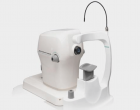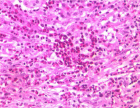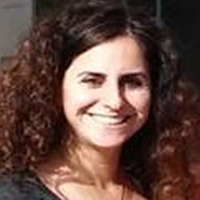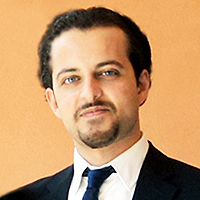Abstract
Research Article
Dual Role of Clinician Managers in Healthcare - Challenges and Opportunities
Ahsana Nazish*
Published: 26 December, 2023 | Volume 7 - Issue 1 | Pages: 007-013
Background: Clinician managers can play a crucial role in healthcare organizations, including hospitals, by combining their clinical expertise with managerial responsibilities. They bring valuable insights and firsthand experience of patient care to managerial positions, contributing to improved patient outcomes and hospital performance. However, they face unique challenges that require careful attention and solutions.
Aim: This review aims to critically discuss the role of clinicians as managers, the challenges that they face, and how they exercise their influence in hospital settings.
Key findings: The role of clinicians as managers is critical for effective leadership and delivery of high-quality patient care. Described as a two-way window, clinician managers bridge the gap between medicine and management by combining clinical expertise with managerial skills in a hybrid leadership approach. Studies have shown a positive impact on hospital performance, including enhanced quality care, improved patient outcomes, and potentially better financial performance. In addition, they play a vital role in fostering interdisciplinary collaboration and boosting staff engagement. However, challenges such as identity conflicts, and limited formal training, are present, especially for first-time managers.
Conclusion: Adapting to the dual role of clinician and manager demands a mindset shift and the development of new skills, necessitating strategic support. This includes leadership education, organizational support, mentoring, and collaborative models to empower clinician managers. Targeted training programs, formal mentoring, and peer support networks equip them with essential skills, while workload management, well-being initiatives, and a culture of balance foster success and growth.
Read Full Article HTML DOI: 10.29328/journal.jcmei.1001029 Cite this Article Read Full Article PDF
Keywords:
Clinician managers; Training; Mentorship; Hospital performance; Quality of care
References
- The World Health Report 2006 - working together for health. Geneva: World Health Organization; 2006. https://www.who.int/whr/2006/en/.
- Clay-Williams R, Ludlow K, Testa L, Li Z, Braithwaite J. Medical leadership, a systematic narrative review: do hospitals and healthcare organisations perform better when led by doctors? BMJ Open. 2017 Sep 24;7(9):e014474. doi: 10.1136/bmjopen-2016-014474. PMID: 28947438; PMCID: PMC5623455.
- Sagan A, Webb E, McKee M, Greer SL, Karanikolos M, Williams GA, Cylus J, Richardson E, Waitzberg R, Lessof S, Figueras J, Falkenbach M, Hernandez-Quevedo C, Klasa K, Mauer N, Panteli D, Permanand G, Quentin W, Rechel B, Rozenblum SD, Thomas S, Willoughby EL, Winkelmann J, Wismar M. Health systems resilience during COVID-19: Lessons for building back better [Internet]. Azzopardi-Muscat N, de la Mata I, editors. Copenhagen (Denmark): European Observatory on Health Systems and Policies; 2021. PMID: 37023237.
- Ndayishimiye C, Sowada C, Dyjach P, Stasiak A, Middleton J, Lopes H, Dubas-Jakóbczyk K. Associations between the COVID-19 Pandemic and Hospital Infrastructure Adaptation and Planning-A Scoping Review. Int J Environ Res Public Health. 2022 Jul 4;19(13):8195. doi: 10.3390/ijerph19138195. PMID: 35805855; PMCID: PMC9266736.
- World Health O. Continuity and coordination of care: a practice brief to support implementation of the WHO Framework on integrated people-centred health services. Geneva: World Health Organization; 2018. 2018.
- Llewellyn S. `Two-Way Windows': Clinicians as Medical Managers. Organization Studies. 2001; 22(4):593-623.
- International Hospital Federation. Communication to the IHF Governing Council. Bernex: International Hospital Federation (2013).
- Liang Z, Leggat SG, Howard PF, Koh L. What makes a hospital manager competent at the middle and senior levels? Aust Health Rev. 2013 Nov;37(5):566-73. doi: 10.1071/AH12004. PMID: 23601561.
- Abdi Z, Lega F, Ebeid N, Ravaghi H. Role of hospital leadership in combating the COVID-19 pandemic. Health Serv Manage Res. 2022 Feb;35(1):2-6. doi: 10.1177/09514848211035620. Epub 2021 Aug 4. PMID: 34347544.
- Martins JM, Isouard G, Freshman B. Human dimension of health service management. Aust Health Rev. 2019 Feb;43(1):103-110. doi: 10.1071/AH17063. PMID: 29127954.
- Calhoun JG, Dollett L, Sinioris ME, Wainio JA, Butler PW, Griffith JR, Warden GL. Development of an interprofessional competency model for healthcare leadership. J Healthc Manag. 2008 Nov-Dec;53(6):375-89; discussion 390-1. PMID: 19070333.
- Savage J, Scott C. The modern matron: a hybrid management role with implications for continuous quality improvement. J Nurs Manag. 2004 Nov;12(6):419-26. doi: 10.1111/j.1365-2834.2004.00511.x. PMID: 15509271.
- Sarto F, Veronesi G. Clinical leadership and hospital performance: assessing the evidence base. BMC Health Serv Res. 2016 May 24;16 Suppl 2(Suppl 2):169. doi: 10.1186/s12913-016-1395-5. PMID: 27230873; PMCID: PMC4896259.
- Gunderman R, Kanter SL. Perspective: Educating physicians to lead hospitals. Acad Med. 2009 Oct;84(10):1348-51. doi: 10.1097/ACM.0b013e3181b6eb42. PMID: 19881420.
- Prybil LD. Size, composition, and culture of high-performing hospital boards. Am J Med Qual. 2006 Jul-Aug;21(4):224-9. doi: 10.1177/1062860606289628. PMID: 16849778.
- Goodall AH. Physician-leaders and hospital performance: is there an association? Soc Sci Med. 2011 Aug;73(4):535-539. doi: 10.1016/j.socscimed.2011.06.025. Epub 2011 Jul 6. PMID: 21802184.
- Schultz FC, Pal S. Who should lead a healthcare organization: MDs or MBAs? J Healthc Manag. 2004 Mar-Apr;49(2):103-16; discussion 116-7. PMID: 15074119.
- Molinari C, Morlock L, Alexander J, Lyles CA. Hospital board effectiveness: relationships between governing board composition and hospital financial viability. Health Serv Res. 1993 Aug;28(3):358-77. PMID: 8344824; PMCID: PMC1069940.
- Succi MJ, Alexander JA. Physician involvement in management and governance: the moderating effects of staff structure and composition. Health Care Manage Rev. 1999 Winter;24(1):33-44. doi: 10.1097/00004010-199901000-00004. PMID: 10047977.
- Laschinger HK, Wong CA, Cummings GG, Grau AL. Resonant leadership and workplace empowerment: the value of positive organizational cultures in reducing workplace incivility. Nurs Econ. 2014 Jan-Feb;32(1):5-15, 44; quiz 16. PMID: 24689153.
- Cummings GG, MacGregor T, Davey M, Lee H, Wong CA, Lo E, Muise M, Stafford E. Leadership styles and outcome patterns for the nursing workforce and work environment: a systematic review. Int J Nurs Stud. 2010 Mar;47(3):363-85. doi: 10.1016/j.ijnurstu.2009.08.006. Epub 2009 Sep 24. PMID: 19781702.
- Spehar I, Frich JC, Kjekshus LE. Clinicians' experiences of becoming a clinical manager: a qualitative study. BMC Health Serv Res. 2012 Nov 22;12:421. doi: 10.1186/1472-6963-12-421. PMID: 23173953; PMCID: PMC3562219.
- Forbes T, Hallier J, Kelly L. Doctors as managers: investors and reluctants in a dual role. Health Serv Manage Res. 2004 Aug;17(3):167-76. doi: 10.1258/0951484041485638. PMID: 15285825.
- Imran D, Rog K, Gallichio J, Alston L. The challenges of becoming and being a clinician manager: a qualitative exploration of the perception of medical doctors in senior leadership roles at a large Australian health service. BMC Health Serv Res. 2021 Apr 15;21(1):351. doi: 10.1186/s12913-021-06356-w. PMID: 33858407; PMCID: PMC8051065.
- McConnell CR. Umiker's management skills for the new health care supervisor: Jones & Bartlett Learning; 2016.
- Mafe C, Menyah E, Nkere M. A proposal for health care management and leadership education within the UK undergraduate medical curriculum. Adv Med Educ Pract. 2016 Feb 12;7:87-9. doi: 10.2147/AMEP.S96781. PMID: 26929680; PMCID: PMC4758789.
- Kumar B, Swee ML, Suneja M. Leadership training programs in graduate medical education: a systematic review. BMC Med Educ. 2020 Jun 2;20(1):175. doi: 10.1186/s12909-020-02089-2. PMID: 32487056; PMCID: PMC7268469.
- Basten D, Haamann TJSO. Approaches for organizational learning: A literature review. 2018;8(3):2158244018794224.
- Mutale W, Vardoy-Mutale AT, Kachemba A, Mukendi R, Clarke K, Mulenga D. Leadership and management training as a catalyst to health system strengthening in low-income settings: Evidence from implementation of the Zambia Management and Leadership course for district health managers in Zambia. PLoS One. 2017 Jul 25;12(7):e0174536. doi: 10.1371/journal.pone.0174536. PMID: 28742853; PMCID: PMC5526553.
- Burgess A, van Diggele C, Mellis C. Mentorship in the health professions: a review. Clin Teach. 2018 Jun;15(3):197-202. doi: 10.1111/tct.12756. Epub 2018 Jan 10. PMID: 29318730.
- Baldwin KS, Dimunation N, Alexander J. Health care leadership and the dyad model. Physician Exec. 2011 Jul-Aug;37(4):66-70. PMID: 21827104.
- Clouser JM, Vundi NL, Cowley AM, Cook C, Williams MV, McIntosh M, Li J. Evaluating the clinical dyad leadership model: a narrative review. J Health Organ Manag. 2020 Sep 8;ahead-of-print(ahead-of-print). doi: 10.1108/JHOM-06-2020-0212. PMID: 32888264
Figures:
Similar Articles
-
Dual Role of Clinician Managers in Healthcare - Challenges and OpportunitiesAhsana Nazish*. Dual Role of Clinician Managers in Healthcare - Challenges and Opportunities. . 2023 doi: 10.29328/journal.jcmei.1001029; 7: 007-013
Recently Viewed
-
Anxiety and depression as an effect of birth order or being an only child: Results of an internet survey in Poland and GermanyJochen Hardt*,Lisa Weyer,Malgorzata Dragan,Wilfried Laubach. Anxiety and depression as an effect of birth order or being an only child: Results of an internet survey in Poland and Germany. Insights Depress Anxiety. 2017: doi: 10.29328/journal.hda.1001003; 1: 015-022
-
Transumbilical Single-incision Hiatal Hernia Repair and Nissen Fundoplication in situs Inversus Totalis: A Rare Case ReportQing Cao,Chen Kang,Kang Gu,Yin Peng,Yang Lv,Xu-Zhong Ding,Peng Li*. Transumbilical Single-incision Hiatal Hernia Repair and Nissen Fundoplication in situs Inversus Totalis: A Rare Case Report. Adv Treat ENT Disord. 2026: doi: 10.29328/journal.ated.1001017; 10: 001-003
-
Case Report of a Child with Beta Thalassemia Major in a Tribal Region of IndiaNeha Chauhan, Prakash Narayan, Mahesh Narayan, Manisha Shukla*. Case Report of a Child with Beta Thalassemia Major in a Tribal Region of India. J Child Adult Vaccines Immunol. 2023: doi: 10.29328/journal.jcavi.1001011; 7: 005-007
-
Hypercalcaemic Crisis Associated with Hyperthyroidism: A Rare and Challenging PresentationKarthik Baburaj*, Priya Thottiyil Nair, Abeed Hussain, Vimal MV. Hypercalcaemic Crisis Associated with Hyperthyroidism: A Rare and Challenging Presentation. Ann Clin Endocrinol Metabol. 2024: doi: 10.29328/journal.acem.1001029; 8: 001-003
-
Physical Performance in the Overweight/Obesity Children Evaluation and RehabilitationCristina Popescu, Mircea-Sebastian Șerbănescu, Gigi Calin*, Magdalena Rodica Trăistaru. Physical Performance in the Overweight/Obesity Children Evaluation and Rehabilitation. Ann Clin Endocrinol Metabol. 2024: doi: 10.29328/journal.acem.1001030; 8: 004-012
Most Viewed
-
Impact of Latex Sensitization on Asthma and Rhinitis Progression: A Study at Abidjan-Cocody University Hospital - Côte d’Ivoire (Progression of Asthma and Rhinitis related to Latex Sensitization)Dasse Sery Romuald*, KL Siransy, N Koffi, RO Yeboah, EK Nguessan, HA Adou, VP Goran-Kouacou, AU Assi, JY Seri, S Moussa, D Oura, CL Memel, H Koya, E Atoukoula. Impact of Latex Sensitization on Asthma and Rhinitis Progression: A Study at Abidjan-Cocody University Hospital - Côte d’Ivoire (Progression of Asthma and Rhinitis related to Latex Sensitization). Arch Asthma Allergy Immunol. 2024 doi: 10.29328/journal.aaai.1001035; 8: 007-012
-
Causal Link between Human Blood Metabolites and Asthma: An Investigation Using Mendelian RandomizationYong-Qing Zhu, Xiao-Yan Meng, Jing-Hua Yang*. Causal Link between Human Blood Metabolites and Asthma: An Investigation Using Mendelian Randomization. Arch Asthma Allergy Immunol. 2023 doi: 10.29328/journal.aaai.1001032; 7: 012-022
-
An algorithm to safely manage oral food challenge in an office-based setting for children with multiple food allergiesNathalie Cottel,Aïcha Dieme,Véronique Orcel,Yannick Chantran,Mélisande Bourgoin-Heck,Jocelyne Just. An algorithm to safely manage oral food challenge in an office-based setting for children with multiple food allergies. Arch Asthma Allergy Immunol. 2021 doi: 10.29328/journal.aaai.1001027; 5: 030-037
-
Snow white: an allergic girl?Oreste Vittore Brenna*. Snow white: an allergic girl?. Arch Asthma Allergy Immunol. 2022 doi: 10.29328/journal.aaai.1001029; 6: 001-002
-
Cytokine intoxication as a model of cell apoptosis and predict of schizophrenia - like affective disordersElena Viktorovna Drozdova*. Cytokine intoxication as a model of cell apoptosis and predict of schizophrenia - like affective disorders. Arch Asthma Allergy Immunol. 2021 doi: 10.29328/journal.aaai.1001028; 5: 038-040

If you are already a member of our network and need to keep track of any developments regarding a question you have already submitted, click "take me to my Query."

















































































































































